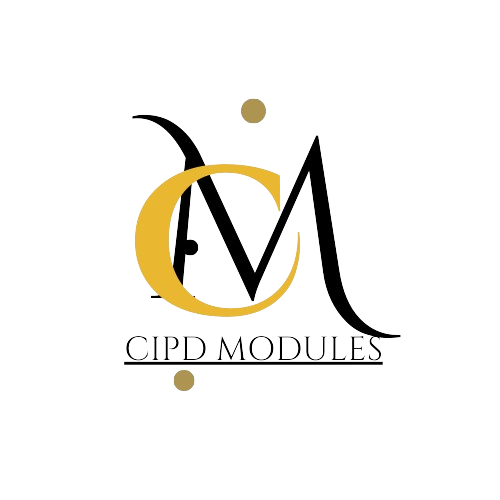
Table of Contents
In order to promote values in the workplace, this unit focuses on the ethical behaviour of HR professionals, with a particular focus on ethical practices specific to HR roles. The unit emphasizes a consistent way of thinking and acting that promotes employee well-being and inclusivity, regardless of the organizational setting or difficulties encountered.
For the core behaviours of people professionals, the learning objectives are:
- This unit uses a variety of approaches to direct organizational work processes in order to encourage awareness of ethical principles and a customer-focused attitude. In addition to analyzing ethical principles and how they are applied in the organizational setting, it will explore various methods for following rules and regulations within individual responsibilities.
- Participants will gain the ability to evaluate the benefits of diverse workplace practices and apply them to solve problems and promote respectful and inclusive idea-sharing. The unit will also cover how to admit mistakes and take responsibility for them while also exhibiting empathy for other workers.
- Teaching participants how to evaluate contemplative practices as a way of enhancing and integrating professional knowledge, skills, and experience within the organizational framework is one of the course’s main goals.
- Appreciating various approaches to supporting and maintaining ethical and professional behaviour
The principles of ethics and values of the profession
The students have a thorough understanding of how professional values and ethical standards act as compass points for various work methodologies. As human resources specialists, they are expected to demonstrate their capacity to apply and uphold ethical standards within organizations, successfully influencing positive cultures through a proactive and individualistic approach. In all of their endeavours, ethical decision-making is regarded as essential because it promotes deep relationships with others and the organization. In order to maintain engagement and success, they are equipped with the best methods for assisting both individual and organizational activities.
Maintaining compliance with laws and regulations within the ethical framework and professional practice
Learners must actively define strategies to comply with pertinent regulatory bodies and legal frameworks while upholding ethical standards within their professions during their educational journey. Organizations are able to consistently operate within the bounds of regulations and laws thanks to this careful approach. Maintaining coherence and alignment between moral obligations and legal compliance is crucial. Professionals are urged to adopt pertinent standards and guidelines and to abide by the CIPD Code of Conduct in order to increase their relevance in the workplace.
Professionals must always put adherence to both legal and ethical standards first in order to handle organizational challenges effectively. They actively support the improvement of procedures to promote both personal and professional development in addition to ensuring compliance.
A good working relationship
Students will graduate from this course with the skills necessary to develop productive working relationships within an organization. They will gain the ability to communicate their ideas and opinions clearly, overcome the organization’s various obstacles, and promote productive teamwork. The following strategies can be used to foster positive working relationships:
- Students will learn how to actively listen to problems, solicit feedback from others, carefully analyze details, maintain an open mindset, and assess their understanding of the issues. This strategy encourages a thorough understanding of various factors, which increases professional engagement in addressing organizational challenges.
- Effective Communication: The course places a strong emphasis on the value of calm and respectful communication, providing relevant details and facts, ensuring that everyone understands opinions, embracing different points of view as part of the discussion without considering them as criticism or challenges, and clarifying any misunderstandings.
- The importance of teamwork and constructive challenges is highlighted, along with the importance of individual differences and their influence on team dynamics. Additionally, students will learn practical techniques for encouraging teamwork and improving it in general.
By the end of the course, students will have a comprehensive understanding of how to forge and maintain a positive working environment, work productively with others, and contribute to a thriving organizational environment.
2. Students will learn how to foster a collaborative working environment with mutual respect, motivated by a strong desire to learn and a sense of professionalism.
Ethics and integrity at work
The organizational setting should be used to teach ethics, with a focus on how people’s behaviour affects both their personal and professional integrity. The goal of the course is to promote a thorough understanding of a variety of subjects, such as corporate social responsibility and sustainability, corporate governance, and values and conduct codes.
By carefully examining the ethical obligations of professionals, participants are encouraged to uphold justice, equity, and fairness within the organization. Additionally, they are instructed to create plans that encourage empathy and respect across the entire organization. Organizations all over the world can benefit from improved communication, negotiation, presentation, teamwork, change management, emotional intelligence, and the capability to address difficulties and conflicts successfully thanks to this ethical foundation.
Recognizing and correcting mistakes made by oneself and others
In this course, students will learn vital abilities to evaluate, recognize, and accept responsibility for both their own errors and those of others in a cordial and compassionate manner. They will possess a method and habits that encourage productive discussions, empowering them to handle mistakes made by both themselves and others with composure and compassion.
Students will gain a sense of accountability for their own actions as well as the actions of their peers if they embrace the lessons learned from making mistakes. They will gain the ability to deal effectively with the fallout from these errors and failures. People who possess this quality are more likely to take proactive steps to help others, contribute to the success of the organization, and deliver value. Acknowledging and owning mistakes requires courage.
Developing people professionals for an evolving workplace
The goal of this course is to equip participants with the skills necessary to demonstrate in-depth curiosity about people, the environment, and organizational issues. Organizations can use a variety of strategies to encourage ongoing intellectual development, including posing questions, carrying out research, both formal and informal investigations, reading articles, blogs, books, and news feeds, as well as actively participating in rival activities.
Learners will investigate various active strategies for personal development throughout the course. They will be urged to document and think back on their specialized knowledge, abilities, and experiences. It is easier for people professionals to identify the factors influencing their continued professional development when they are aware of the importance of continuous development, recording, and reflection in their work.
The course encourages contemplative practice and emphasizes the critical idea of ongoing professional development by placing a strong emphasis on learning, assessment, recording, action learning, and knowledge conversation. The chance to reflect on their HR practices will give learners a profound understanding of the value of their education and training in advancing their careers.
Must Read:

